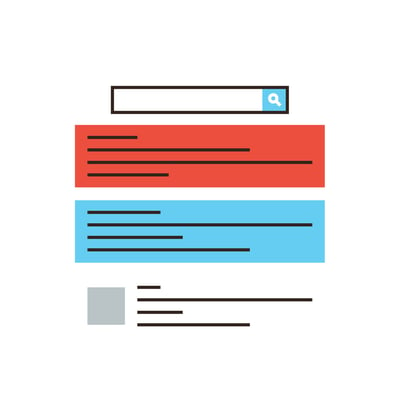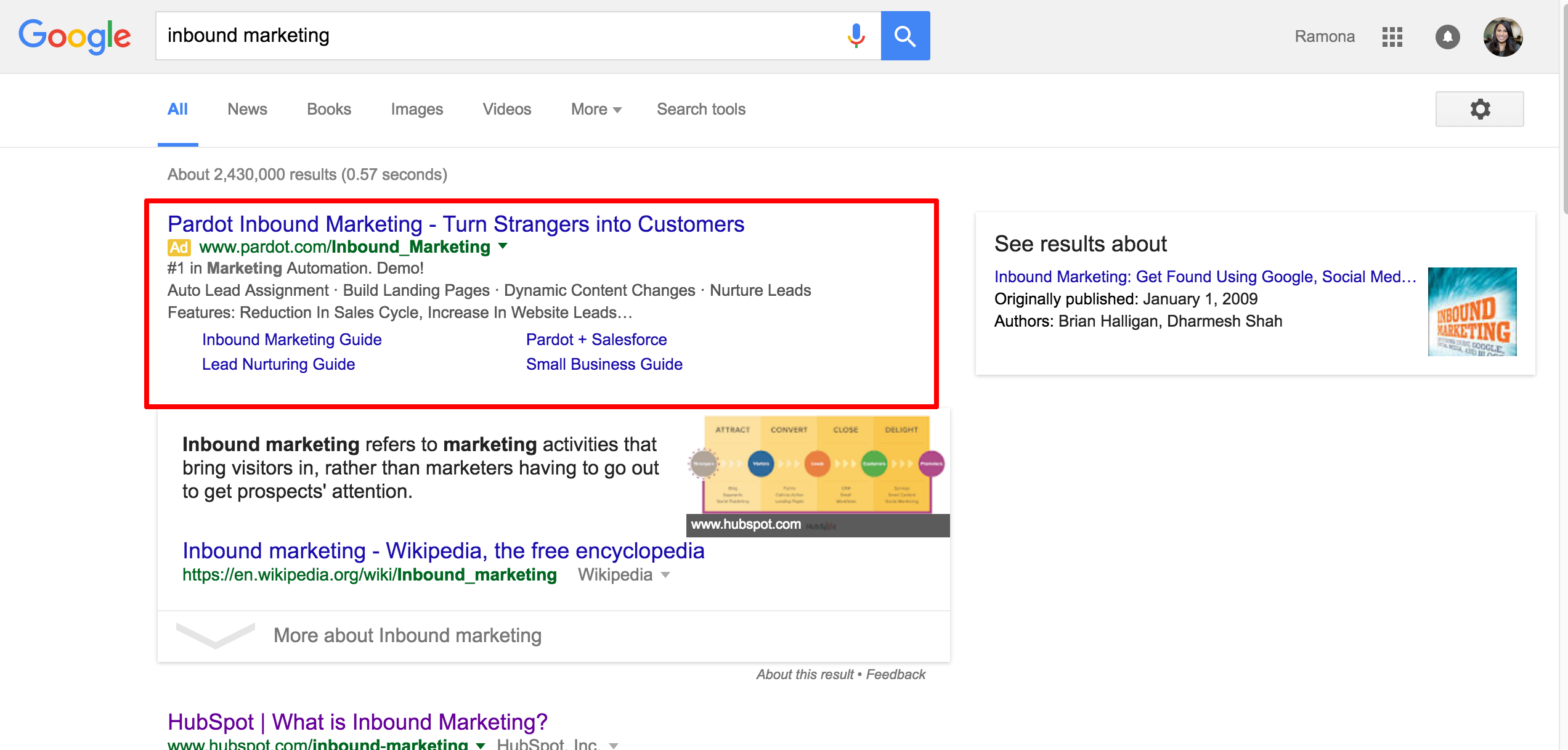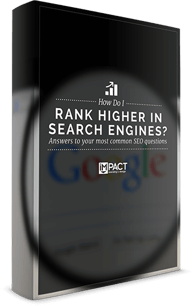Subscribe now and get the latest podcast releases delivered straight to your inbox.
Organic search vs paid search: What's the difference in 2020?

Nov 19, 2019

Organic search vs paid search
Organic search traffic comes from people finding business links among search engine results. SEO optimization influences organic search results. Paid search traffic is attributed from visitors clicking on a link in an advertisement or sponsored listing that a business has paid for in order to appear at the top of search results.
Unless you're one of the 19% of people using Bing or Yahoo, we all go searching for answers in the same place.
Google.
Google, in all its tech glory, represents two completely different, yet equally valuable traffic sources to inbound marketers: organic search and paid search.
The methods for acquiring traffic from these two sources are known as search engine optimization (SEO) and search engine marketing (SEM) respectively. If you'd like to learn more about these individual methods, here are a few resources that you can read through.
SEO
- SEO: A comprehensive guide for beginners by Kissmetrics (short version)
- The beginner's guide to SEO by Moz (long version)
- The advanced guide to SEO by Quick Sprout
SEM
- A beginner's guide to paid search by Search Engine Watch
- How to create a profitable Google AdWords campaign by Kissmetrics
Now let's take a look at the key differences between organic search and paid search.
Organic search
Whenever you type a question into Google, or any other search engine, the list of links that appear below the ads are known as "organic results."
These appear purely based on the quality and content of the page.
Traffic that comes from people finding your links among these results is classified as "organic search" traffic or just organic traffic.
Organic traffic is widely considered the most valuable traffic source for several reasons:
- Google directs the highest amount of traffic and they are the most trusted source for people researching a purchase.
- Google is very, very particular about their rankings and ranking in the top five results for a keyword indicates that your content is high quality.
- Moving up in the rankings is difficult and takes time, but once you're there you get to reap the benefits for a long time.
- Results on the first page of Google (The Top 10) receive 92% off all search traffic on Google. Traffic drops by 95% on the second page.
- 33% of clicks from organic search results go to the very first listing on Google.
The downside to organic search is that it takes time to get indexed and really start generating traffic from this source. (If you're looking for instant gratification, look elsewhere!)
Before everyone and their mom was online and SEO became the norm, ranking well on Google wasn't difficult at all. In fact, the competition was so bleak that simply writing a few articles about a subject was enough to gain the top spot for many niches. There was really no need to try to game the system.
But things have changed dramatically in the last ten years.
Now, every business has a website, most webmasters are at least vaguely familiar with SEO, and Google has cracked down on keyword stuffing and many "Black Hat" SEO methods (against their rules and sometimes illegal) that some marketers use.
Increasing organic traffic and earning top rankings takes time, persistence, and more effort than in the past -- but it's well worth it. Take the following facts into consideration:
- 57% of B2B marketers say SEO has the biggest impact on lead generation
- On average, organic search leads have a 14.6% close rate, compared to 1.7% for outbound marketing leads
- The highest spenders are more likely to turn to organic search for information
- Every month there are more than 10.3 billion Google searches, with 78% of U.S. internet users researching products and services online
*Sources and more SEO statistics can be found here.
Google is engrained not only in our buying behavior, but our lives in general. Unless another robust, global method for searching the internet comes along, the importance of search engine optimization and organic traffic is unlikely to slow down.
Paid search
Paid search accounts are those that companies have paid to appear at the top of search results (above those that earned their page-one spots organically.)

Despite the little yellow box next to their title reading "ad," many consumers are unaware that these are even advertisements. The ads feel native and fit seamlessly into the results to be less obtrustive.
For these reasons, paid search has been more popular in recent years as organic search has become more competitive.
Rather than having to wait patiently for your SEO to build up, you can pay for the chance to get seen on page one of Google immediately.
To give you an idea of just how much money is being spent on paid search, take a look at Google. Google's AdWords program is the most used pay-per-click (PPC) advertising program available today. While the tech giant owns YouTube and Android, among hundreds of other profitable brands, AdWords accounts for roughly 70% of their revenue -- which speaks wonders for its effectiveness.
When starting your first campaign on Google Adwords, you need to be tactful. When done right, you can start getting a ton of targeted traffic to your landing pages much quicker than you would be able to get from organic search, but you can learn more about that here.
Conclusion: Organic search vs paid search
Traditionally, inbound marketers have avoided paid search as we viewed it as more of an outbound method for marketing, but with Social Media Ads and tools like HubSpot Ads, it's becoming far more common for the two to work together.
Realistically, it takes three to six months to start seeing movement in search rankings and most people just don't want to wait that long. Paid search helps you get visitors to your website today and also speeds up the process of optimizing your landing pages for higher conversions, which pays off exponentially in the long run.
So, if you are weighing the pros and cons of organic search vs paid search, sit down with your team and examine your timeline and budget.
If you're looking for the quickest results, paid search is better, but if you're looking for the most cost-effective results, the answer becomes less clear cut.
In general, organic search is more cost-effective in the long run. However, with the right tweaking to your campaign and attention to landing page optimization, paid search can be very cost-effective as well.
Take a look at your goals and don't be afraid to experiment.
Free: Assessment

